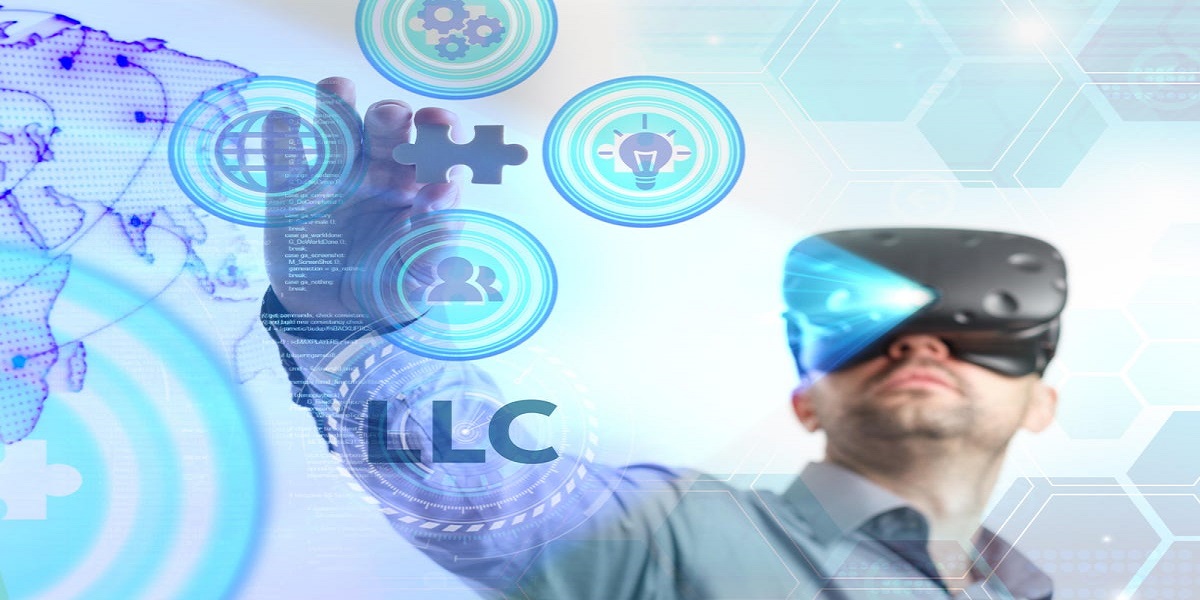
Is Virtual Reality Part Of Artificial Intelligence?
- By Oggy
- 07-11-2022
- Technology
Virtual reality has been around for a few decades, but it has only recently been used in artificial intelligence research. Some people believe that VR is part of the artificial intelligence development process, while others believe that it is a separate field. The future of virtual reality is still unclear, but its potential is massive.
What Is Virtual Reality?
Virtual reality, or VR, is a technology that allows users to experience a simulated environment that is different from the real world. With VR, users can explore and interact with virtual objects and environments.
VR technology has been used in gaming and entertainment for many years, but it has recently seen a revival in the medical field. Doctors can use VR to train for surgery or to diagnose medical conditions. Virtual reality also has potential uses in training soldiers or police officers.
The popularity of VR will continue to grow as more companies develop applications for the technology. VR will be especially useful for immersive learning experiences, which will allow students to learn new information in a more engaging way.
How Does Virtual Reality Work?
Virtual Reality is a technology that creates an immersive environment where users can interact with digital objects and experiences. The technology works by using sensors to track the user's head and body, then creating a three-dimensional scene in which they can place themselves. This can be done through devices like the Oculus Rift or HTC Vive, which require a gaming PC to operate.
How Virtual Reality Is Beneficial?
For the past few years, there is a rise in the popularity of Virtual Reality. It is a technology that allows people to experience things that are not physically possible. There are many benefits to virtual reality that can be used in many different ways.
Here are some common benefits of Virtual Reality:
1. Creating opportunities for education and training. VR can be used to help people learn new information or train for a new job.
2. Increased productivity. Studies have shown that workers who use virtual reality headsets are more productive than those who do not. This is because they are able to complete tasks more quickly and with fewer errors due to the immersive nature of the experience.
3. Reduced anxiety and stress levels. Virtual Reality can help people reduce anxiety and stress levels by providing an escape from the real world.
4. Many sites like YouTube and Vimeo also use virtual reality to provide immersive watching experiences to users. A VPN can be useful to access VR videos on such websites and using NordVPN YouTuber codes can let you do that.
5. Virtual Reality has a long list of benefits that can be enjoyed by gamers, such as improved hand-eye coordination, spatial awareness, and problem-solving skills. VR technology provides an immersive experience that can improve creativity and focus.
6. Virtual reality can also be used for training purposes, such as in the medical field.
What Is Artificial Intelligence?
Artificial intelligence is a field of computer science that deals with creating intelligent agents, which are systems that can learn and reason like humans. Artificial intelligence research is divided into two main camps: machine learning and artificial general intelligence. Machine learning focuses on the development of algorithms that allow computers to learn from data on their own. Artificial general intelligence, by contrast, is a more ambitious goal that seeks to create a computer system that can competently do tasks typically thought to be impossible for even the most advanced human beings, such as understanding natural language and recognizing patterns.
Is There Similarity Between Virtual Reality and Artificial Intelligence?
Virtual reality is one example of artificial intelligence. Both technologies are used to create immersive experiences that can be used for entertainment or educational purposes. They also share some similarities, such as the ability to interact with digital objects and the use of machine learning to improve performance over time. While VR has been around for more than 50 years, AI has only recently become popularized. This may change in the future as AI becomes more sophisticated and virtual reality technology continues to evolve.
How Virtual Reality Is Different From Artificial Intelligence?
Virtual reality technology has been around for many years, but artificial intelligence is only now starting to become mainstream. The two technologies are similar in some ways, but they also have some important differences.
One key difference between virtual reality and artificial intelligence is that VR requires a physical environment in order to work. Artificial intelligence, on the other hand, can be used in a variety of different settings, including online environments.
Another key difference between the two technologies is that virtual reality technology requires a user to be completely immersed in the experience. This means that users must wear special headgear and often have access to only limited amounts of information. Artificial intelligence, on the other hand, can be used to simulate human behavior without requiring direct interaction from users.
The two technologies have different fields of applications. This creates another difference between the two technologies as VR is primarily used for entertainment purposes, while AI has more practical applications.
How Virtual Reality Is Different From Artificial Reality?
Virtual reality is a type of artificial reality that simulates a three-dimensional environment. It uses immersive computer graphics to create a realistic illusion of being in another place. Virtual reality devices allow you to enter this world and explore it.
Artificial reality is different from virtual reality. Artificial reality creates a realistically simulated environment, while virtual reality allows users to interact with the environment through handheld devices such as smartphones or computers. In general, VR has been used for gaming and movies, while artificial reality has been used in clinical settings such as rehabilitation therapy and training simulations.
Future of Virtual Reality With Artificial Intelligence
In the future, virtual reality will be augmented with artificial intelligence to create even more immersive experiences. This technology will allow people to experience realistic environments and interactions with other people in a way that is impossible in reality. The possibilities are endless, and VR will continue to grow in popularity as developers find new ways to use it.
The future of virtual reality (VR) is looking very bright with the increasing popularity of AI. Already, there are a number of companies developing VR headsets that incorporate AI into their design. This has the potential to not only revolutionize how we experience VR but also how we learn and work. In the future, it is likely that AI will be able to assist us in a wide variety of tasks, from learning new information to navigating our surroundings. As VR becomes more mainstream, it is important to consider the implications of this technology on society as a whole.
Conclusion
In conclusion, it is still unclear if virtual reality is a part of artificial intelligence. However, the increasing use of VR technology suggests that it may be in the near future. With more research being done, it may become clearer what role VR plays in AI development. So far, VR has shown the potential in helping people learn new things or improve their skills. However, there are still many questions to be answered about this new form of technology.
Recent blog

Crafting Eye-Catching Instagram Reels In Just 9 Easy Steps
Social Media | 25-04-2024.png)
Boost Sales and Conversions with Shopify's New AI-Powered Semantic Search
E-commerce | 24-04-2024




